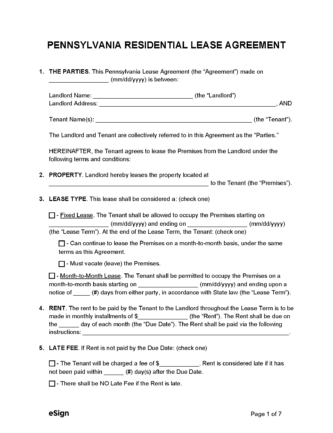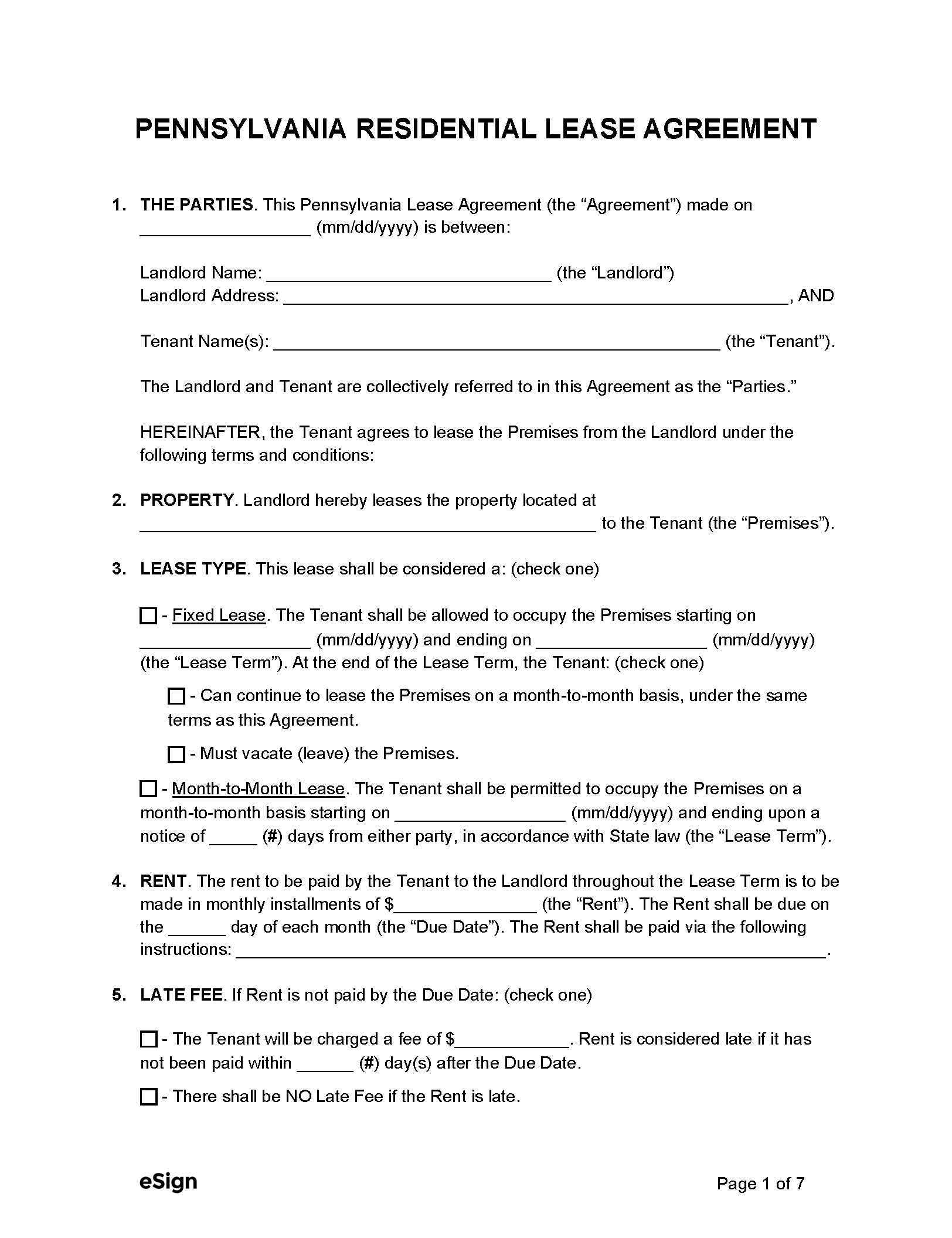Lease Agreements: By Type (6)
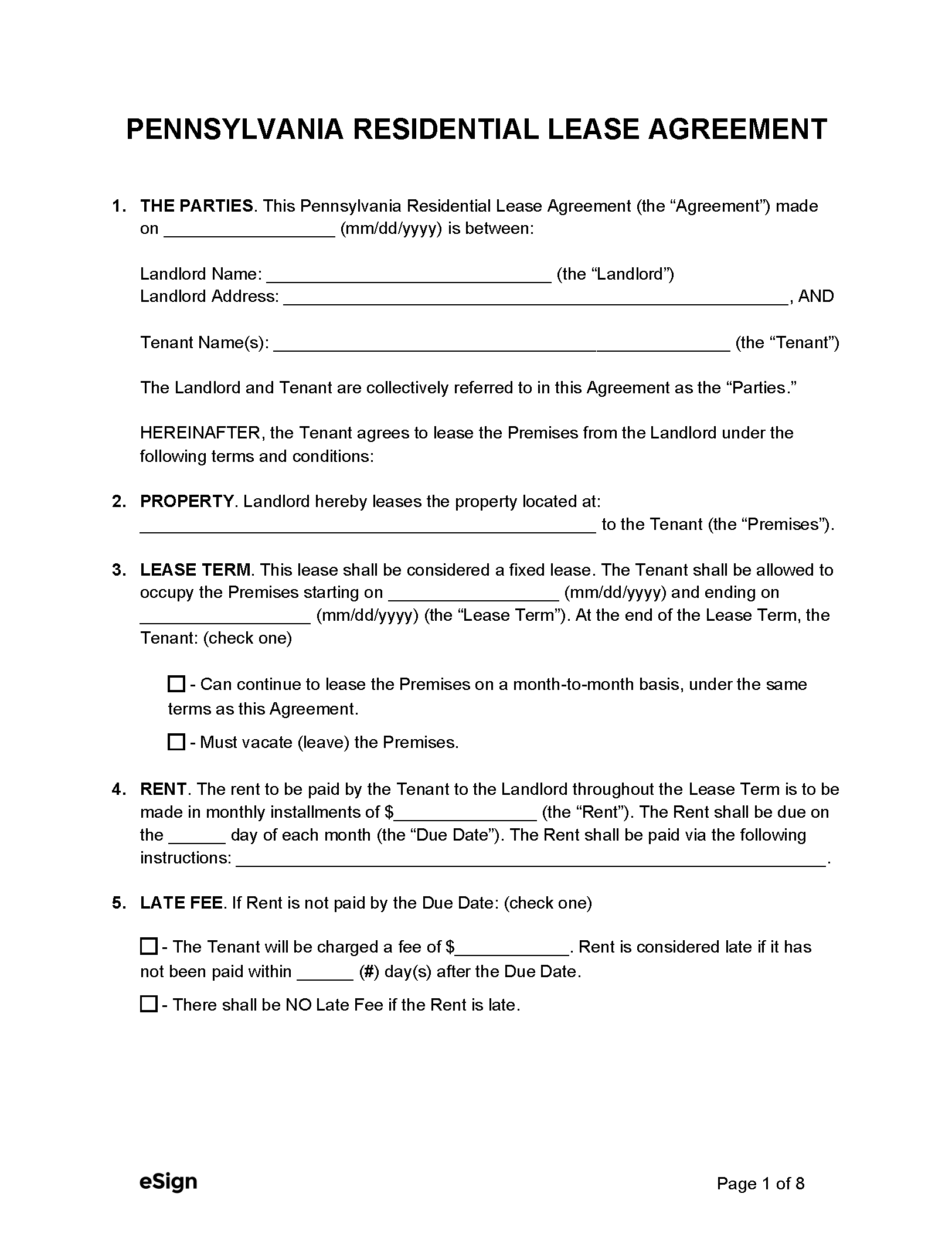 Standard (1-year) Lease Agreement – This rental contract allows a tenant to lease a residential property for 12 months, usually with the option to renew. Standard (1-year) Lease Agreement – This rental contract allows a tenant to lease a residential property for 12 months, usually with the option to renew.
Download: PDF, Word (.docx), OpenDocument |
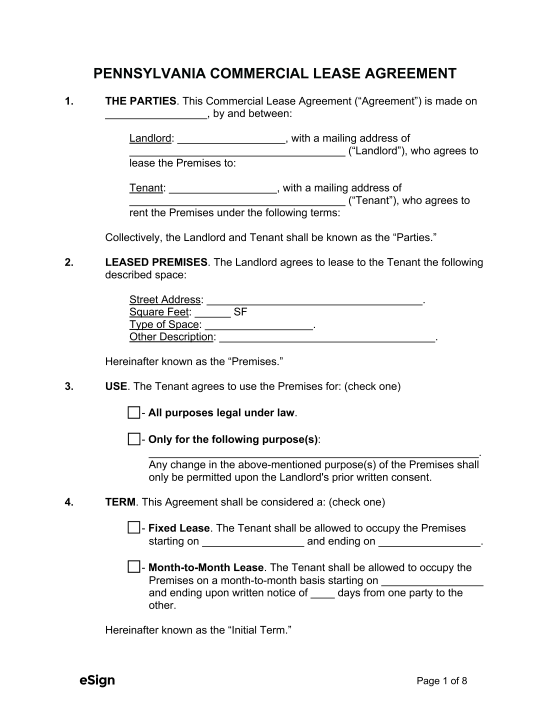 Commercial Lease Agreement – A commercial lease agreement is used to rent space designated for business use. Commercial Lease Agreement – A commercial lease agreement is used to rent space designated for business use.
Download: PDF, Word (.docx), OpenDocument |
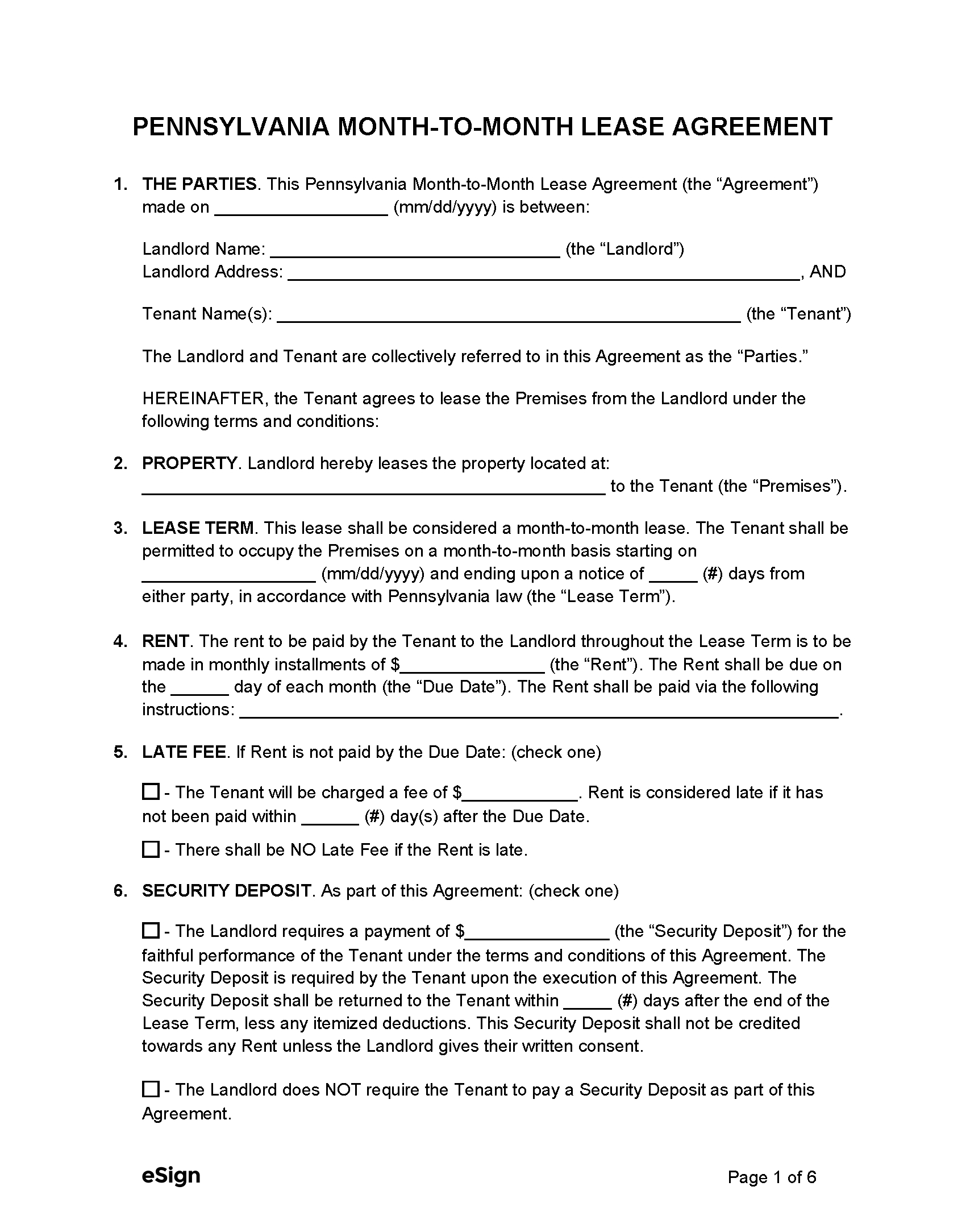 Month-to-Month Lease Agreement – A rental agreement with no termination date that renews with each monthly payment the tenant makes. Month-to-Month Lease Agreement – A rental agreement with no termination date that renews with each monthly payment the tenant makes.
Download: PDF, Word (.docx), OpenDocument |
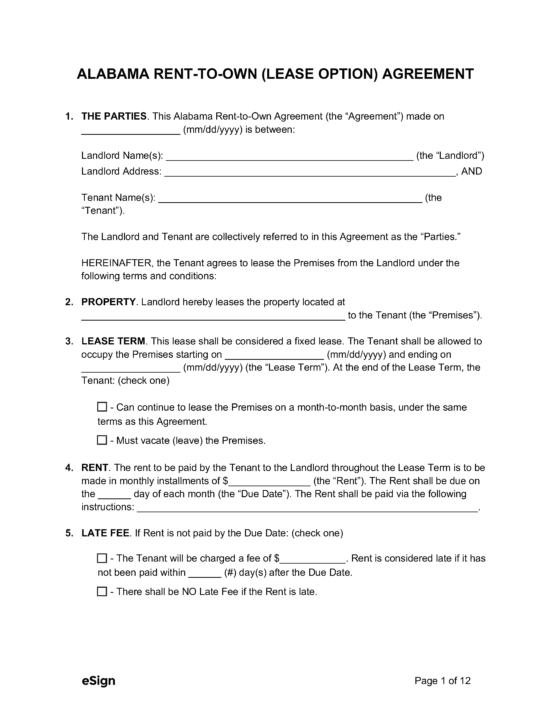 Rent-to-Own Agreement (Lease Option) – A standard lease offering tenants the option to buy the property under predetermined conditions. Rent-to-Own Agreement (Lease Option) – A standard lease offering tenants the option to buy the property under predetermined conditions.
Download: PDF, Word (.docx), OpenDocument |
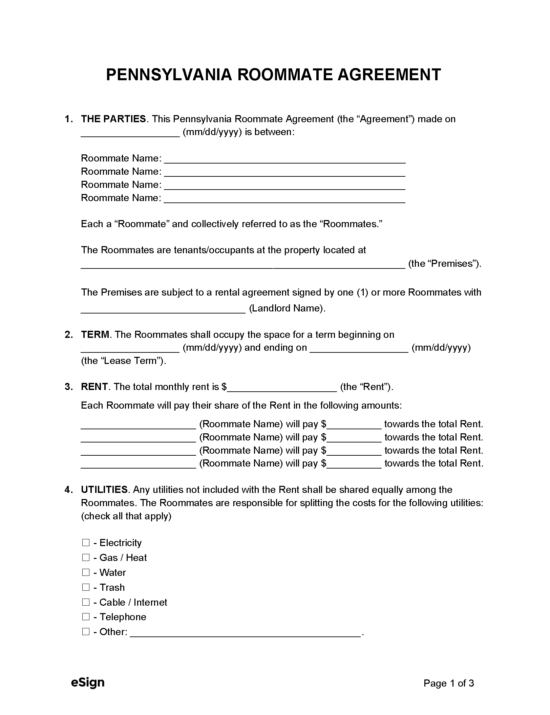 Roommate Agreement – A formal arrangement between roommates that lays out their responsibilities as tenants in a shared residence. Roommate Agreement – A formal arrangement between roommates that lays out their responsibilities as tenants in a shared residence.
Download: PDF, Word (.docx), OpenDocument |
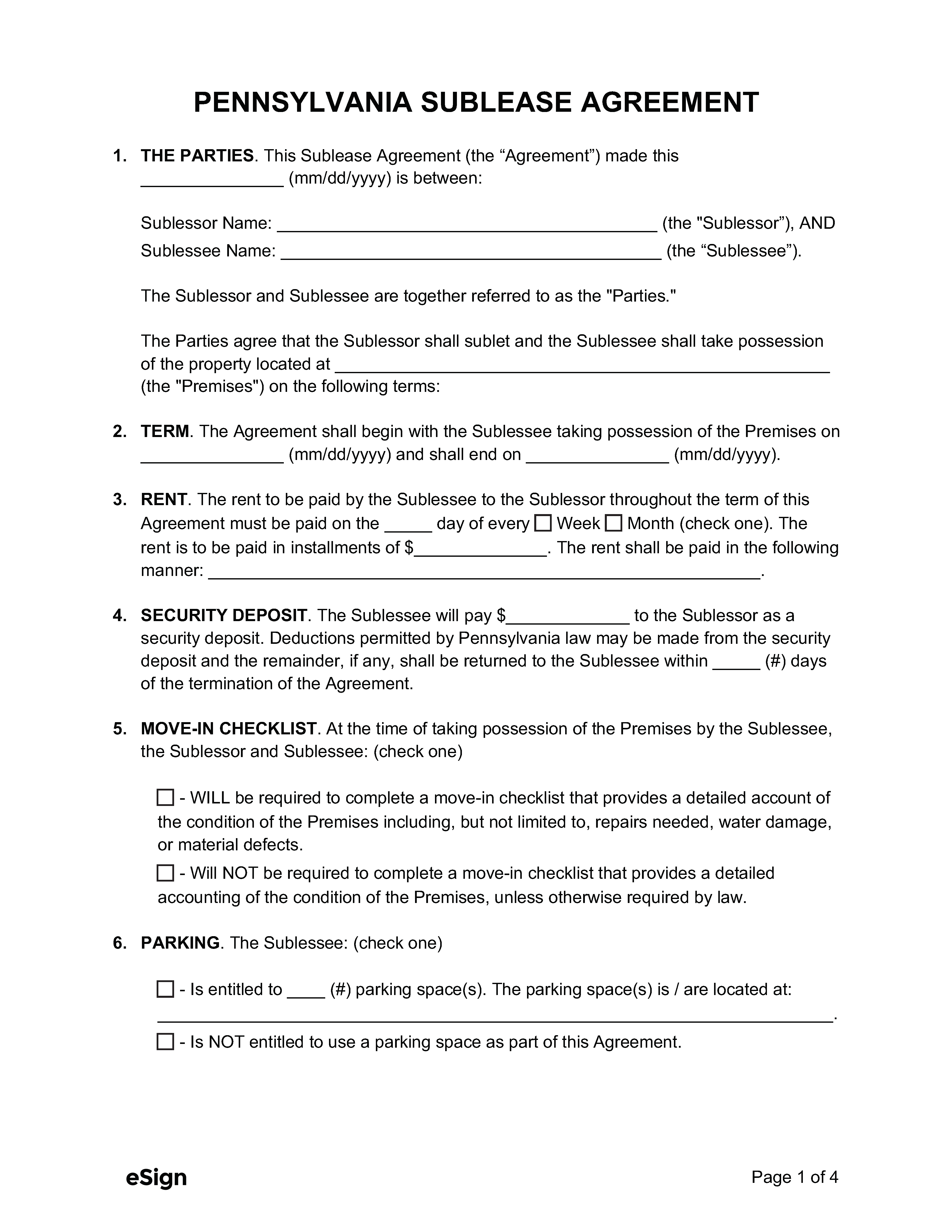 Sublease Agreement – This agreement enables individuals to rent out all or part of their leased space to subtenants. Sublease Agreement – This agreement enables individuals to rent out all or part of their leased space to subtenants.
Download: PDF, Word (.docx), OpenDocument |
Required Disclosures (1)
- Lead-Based Paint Disclosure (PDF) – Federal law requires the landlord to distribute this lead paint disclosure to tenants if the leased premises was constructed before 1978.[1]
Security Deposits
Maximum Amount ($) – For the first year of tenancy, the landlord may not charge more than two months’ rent. For every subsequent year, the amount can’t exceed one month’s rent.[2]
Collecting Interest – The tenant is entitled to interest earned on the security deposit at the end of the third year of tenancy and each subsequent year.[3]
Returning to Tenant – The security deposit must be returned to the tenant within 30 days from the lease termination date or when the tenant surrenders the property (whichever comes first).[4]
Itemized List Required? – Yes, a list of damages must be provided to the tenant if the landlord keeps any of the security deposit.[5]
Separate Bank Account? – Yes, any security deposits that exceed $100 must be kept in an escrow account.[6]
Landlord’s Entry
General Access – No Pennsylvania statute mentions a notice period for landlord access, but tenants must give reasonable access for the landlord to do maintenance, repairs, and property showings.[7] Landlords may utilize a notice to enter to prepare tenants for when access is needed.
Immediate Access – There are no laws that describe the circumstances under which the landlord may enter the property without notice.
Rent Payments
Grace Period – No law requires a landlord to provide a grace period before charging a tenant late fees.
Maximum Late Fee ($) – Pennsylvania has no legislative limitations on late fees.
Withholding Rent – If the tenant proves that the property is not habitable, and following notification, the landlord hasn’t remedied the problem within a reasonable amount of time, the tenant may repair the problem and deduct the cost from the rent, or withhold rent until the premises is deemed habitable.[8]
Breaking a Lease
Non-Payment of Rent – The landlord may serve the tenant with a 10-day notice to quit to inform them that they must pay or quit if they fail to pay rent on time.[9]
Non-Compliance – If the tenant breaches the terms of their lease, the landlord can serve a 15-day notice to quit if the lease is for one year or less, or a 30-day notice to quit for leases longer than one year.[10]
Lockouts – The landlord must receive a court order before tenants can be locked out of the rental unit.[11]
Leaving Before the End Date – Landlord remedies for tenant abandonment are not mentioned in the state statutes.
Lease Termination
Month-to-Month Tenancy – Landlords and tenants may use a notice to terminate month-to-month tenancy to end the rental agreement. The party terminating the agreement must give at least 15 days’ notice.[12]
Unclaimed Property – Landlords must provide tenants with a 10-day written notice to collect their personal property before it may be disposed of.[13]
